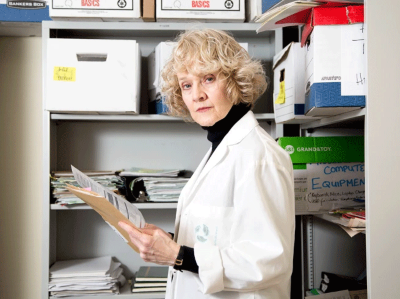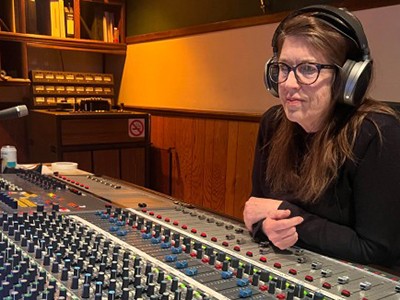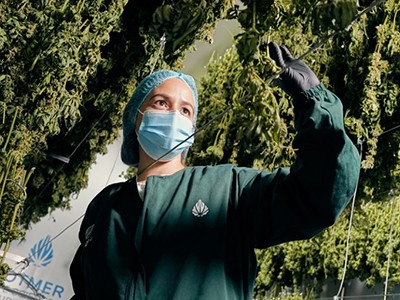Mississippi Cannabis News
My fight to unlock cannabis and psychedelic drugs for use in medical research
Published
4 months agoon
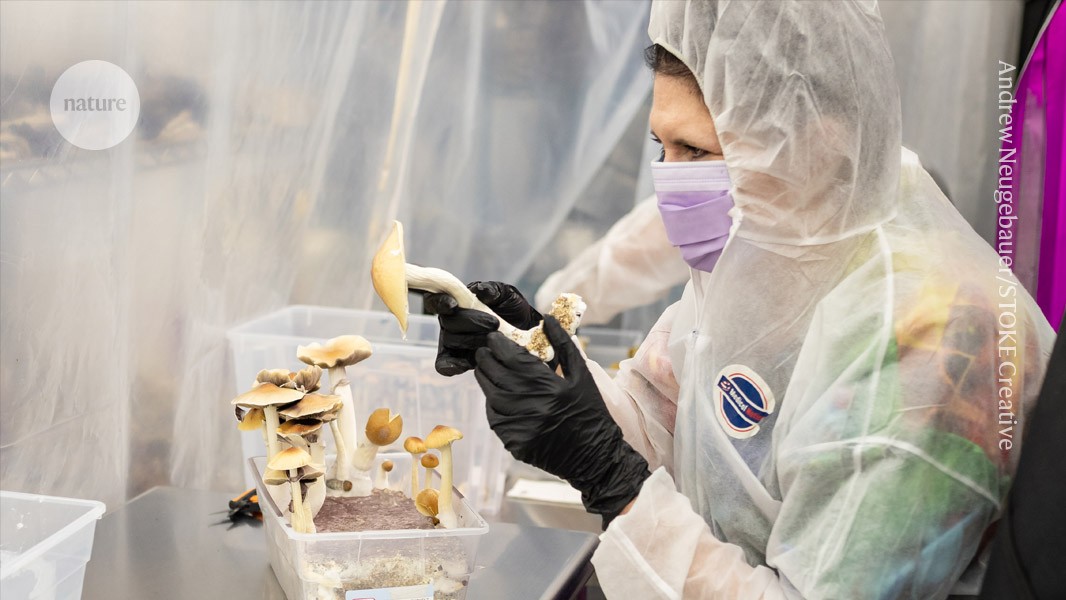
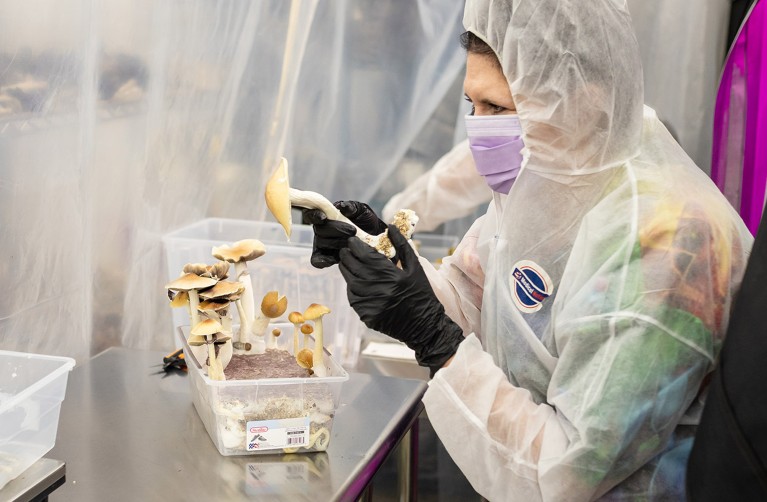
Sue Sisley’s team has grown whole psilocybin-producing mushrooms for clinical trials.Credit: Andrew Neugebauer/STOKE Creative
Working scientist profiles
This article is part of an occasional series in which Nature profiles scientists with unusual career histories or outside interests.
From the earliest days of her career, physician Sue Sisley has been passionate about caring for US military veterans. Back then, many of the people she treated were self-medicating with black-market cannabis because, unlike prescription drugs, marijuana allayed nightmares and other symptoms of post-traumatic stress disorder (PTSD). A few puffs helped them to fall asleep.
“Initially, I discouraged them and rolled my eyes thinking about it,” says Sisley, whose training taught her to view only approved drugs as medicines. “I lacked sympathy for their claims and thought they were drug seekers.”
Whistleblowing in science: this physician faced ostracization after standing up to pharma
But over time, Sisley saw how the ineffectiveness of mental-health treatments could fuel hopelessness. Currently, 17 US veterans die by suicide daily, on average. The cannabis users among Sisley’s patients were often the ones who maintained a will to live.
“It made me realize that I was very misled, by the government and our training programmes, to believe that cannabis was dangerous,” she says. “I didn’t learn about any medical benefits.”
The early lessons from her patients influenced Sisley. Over the next two decades, she challenged US federal agencies, navigated a legal and regulatory maze and creatively secured funding to investigate and develop treatments, based on cannabis and psychedelics, that the US government had blocked for decades.
A physician-researcher is born
After the US Congress passed the Controlled Substances Act of 1970, cannabis was made illegal and classified as a Schedule I drug, defined as having no accepted medical use. That put marijuana in the same category as heroin and most psychedelic drugs: possession or use of the drug, and growing cannabis without a Schedule I research licence, could land someone in prison.
In the mid-1990s, several US states began defying federal law, allowing adults to purchase cannabis for medicinal purposes. In 2008, when medical marijuana was still off limits in Arizona, Sisley was one of the few physicians who spoke publicly about legalizing it. Her advocacy caught the attention of Rick Doblin, who sought to get certain psychedelic drugs and cannabis taken off Schedule I so that they could be studied and any medical benefits reaped.

Sisley (centre) visits the Texas state capitol to advocate for research on psychedelics.Credit: Andrew Neugebauer/STOKE Creative
Doblin founded a US non-profit body, the Multidisciplinary Association for Psychedelic Studies (MAPS), to raise money from private donors for clinical trials. He approached Sisley to lead a cannabis study.
Although she lacked a background in research, Sisley was an associate professor of psychiatry and assistant director of telemedicine at the University of Arizona College of Medicine in Phoenix, and Doblin saw her potential. “What really appealed to me is that Sue looks to where science is being blocked by politics, and she’s willing to stand up for what she thinks is right,” he says.
In 2014, Sisley and MAPS received nearly US$2.2 million from the state of Colorado. With approval from the US Food and Drug Administration (FDA), they were poised to lead the world’s first randomized controlled trial of smoked cannabis as a treatment for PTSD in veterans.
But then the University of Arizona declined to renew Sisley’s contract. Although Sisley says that the university simply stated that her services were no longer needed, she thinks there were political pressures involved.
Working Scientist career profiles
“Even though it was legitimate research” and Arizona voters had approved the medical use of marijuana in 2010, Sisley says, “I believe some legislators did not want anything related to cannabis to have a place at the university.”
In the end, however, the termination of her contract “turned out to be a huge gift”, she says. She learnt that she didn’t need a university or hospital to lead the research. In fact, she now thinks the bureaucracy might have slowed her down. In the following two years, Sisley co-founded the Scottsdale Research Institute, purchased a building for it in Phoenix, Arizona, and built a laboratory to begin her study.
In 2016, as she prepared to enrol participants, the cannabis for the study arrived. At the time, the University of Mississippi in Oxford was the sole US government-approved provider of cannabis for use in human research. But when Sisley opened the box, she was horrified. The cannabis was mouldy, pulverized into powder and littered with twigs. It was nothing like the buds sold at dispensaries, and some participants had difficulty in inhaling it because it irritated their throats.
Sisley’s team found that participants who smoked cannabis showed improvement over the placebo group, but not enough to demonstrate statistical significance (M. O. Bonn-Miller et al. PLoS ONE 16, e0246990; 2021). Sisley thought that if participants had access to the cannabis available in dispensaries, they might have tolerated it better and experienced more benefits.
To raise awareness about barriers to cannabis research, Sisley went on a speaking tour (together with Dodger, her guide dog). In 2019, at the South by Southwest conference on music, film, culture and technology in Austin, Texas, she described what was, by then, a ten-year battle to complete her clinical trial, and a move by the US Drug Enforcement Administration (DEA) that might help. In 2016, the agency had announced a policy that aimed to broaden the government’s cannabis supply, so Sisley applied for a Schedule I licence to grow cannabis for a phase IIb trial. But, after two-and-a-half years, the DEA still had not processed her application.
Suing the government for science
Matthew Zorn, an attorney based in Houston, Texas, attended Sisley’s talk. He had become interested in marijuana as a pain treatment while caring for his partner, who later died of bone cancer, and was angered by the red tape surrounding the drug supply for trials. “All Sue was trying to do was advance research. She did everything by the book,” says Zorn. If the cannabis used in a trial “is garbage, of course you can’t prove something is safe and efficacious, and then it’s not going to be available for patients”.
Zorn recruited his colleague Shane Pennington, then also based in Houston, who had experience of bringing cases against federal agencies. Together, representing Sisley pro bono, they helped her to sue the DEA in 2019.

Sue Sisley speaks at the 2025 South by Southwest festival in Austin, Texas.Credit: Andrew Neugebauer/STOKE Creative
The lawsuit prompted the US Office of Legal Counsel to release a memo that revealed why the DEA had been sitting on Sisley’s cannabis application. The US government had handed over control of the cannabis supply for medical trials to the University of Mississippi when, under the terms of an international treaty, it was supposed to ensure that a single government agency possessed and distributed the supply.
With the memo’s release, “they realized they had to do something”, says Anthony Coulson, former assistant special agent in charge of the DEA’s district office in Tucson, Arizona. “Sisley’s lawsuit forced the DEA to the table.”
Two months after the lawsuit was filed, the DEA began processing Sisley’s application and dozens from other US scientists, allowing them to grow medical-grade cannabis for research studies. This was crucial, because cannabis used in phase III trials must match what’s on the market for patients, whereas the government’s supply of cannabis did not.
“Because of Sue’s years of sacrifice, she built a foundation for every single cannabis researcher,” says Coulson.
Sisley’s case was settled in 2020, and she feels the struggle was worth it (see ‘Quick-fire Q&A’). “There are so many people suffering who might get their lives back and benefit from this research.”
Quick-fire Q&A
As a researcher with impaired vision, how have you navigated challenges?
I’ve had low vision since birth. I’m high functioning, but I don’t think anybody expected me to get through medical school. I use guide dogs and can get around, but the biggest challenge is reading. Thank God for all these accessibility devices on my computer and phone. I use the magnifying features to expand documents. It gets tedious, but I just keep moving forward and I surround myself with people who can help to fill in the deficits.
What makes the legal struggles and advocacy work worthwhile?
For years, I wrote conventional prescriptions and never felt as if I was improving people’s lives in the long term. Patients experience side effects, can’t get off their medications or face withdrawal symptoms. Now, I feel joy seeing some people take psychoactive drugs and experience an immediate reduction in symptoms, and an enduring benefit. I hope this research provides tools and maybe interventions that could help to stabilize the illnesses I work on. We still need deep investigations across a much larger population size, but I feel we’re on an important path to helping people.
You treat people receiving hospice care today. What inspired that shift and how might psychedelic research help them?
My dad was a hospice patient who died of end-stage colon cancer. Knowing he would leave our family early created a profound existential distress which didn’t respond to medications such as antidepressants. He was in non-stop pain. It was a brutal death. My mum had dementia, and didn’t want to die like that. She took microdoses of psilocybin and LSD, and her sadness and anxiety melted away. That was the closest thing I’ve ever seen to a good death. Working with people in hospice care, I hope to create change from within and show that psychedelic medicines could have a role.
Around this time, Sisley heard from people who were self-administering the drug psilocybin, found in certain mushrooms, to treat conditions such as cluster headaches and suicidality. She began reading up on psilocybin therapy and learnt that just a few sessions could suppress PTSD symptoms for months or years, although participants had to meet with therapists to prepare for and learn from their psychedelic experiences. By contrast, people typically smoke cannabis daily to maintain its effects.
After Sisley received her cannabis Schedule I licence, she quickly filed an application to farm psilocybin-producing mushrooms. The DEA approved it immediately and “seemed to be cheering for us”, says Sisley.
Coulson has a theory about why the agency — which not only enforces drug laws but also has a core value of enhancing public health — might now be on Sisley’s side. “They want her to succeed because she is driven to move the science forward by a greater altruistic motive of helping patients,” he says. “Once you get to know her, you realize there’s no outside agenda. That’s the magic with Sue.” Since he retired from the DEA in 2010, he has acted as a consultant for Sisley while she built the infrastructure for her studies.
A quest to study natural medicines
In current psilocybin clinical trials, participants receive a synthetic version of the drug that offers precise dosing, which appeals both to the FDA and to pharmaceutical companies.
But Sisley is eager to change that. She wants to study whole mushrooms to investigate whether the diverse chemicals in them provide health benefits. She also sees potential to develop more-affordable treatments, because mushrooms can be grown inexpensively.
Now, Sisley is striving to lead the world’s first FDA-approved study of whole mushrooms containing psilocybin. But once again, she has had to overcome several obstacles.
Decriminalization of marijuana opens doors for some scientists
First, she had to work out how to deliver mushrooms to meet the FDA’s dosing standards. But there was no published protocol for this.
Nicole Nichols, executive director of the Scottsdale Research Institute, grows edible mushrooms and volunteered to develop such a protocol. Initially, she and Sisley tried delivering mushrooms in a warm tea, but the results were erratic. Then they tried using pills, but realized that it would take 18 capsules to deliver the required dose.
Eventually, they experimented with chocolate, which masked the mushrooms’ unpalatable flavour and served as a protective wrap that stabilized psilocybin. After consistently hitting the FDA’s dosing requirements, they published their protocol (R. Goff et al. Anal. Chim. Acta 1288, 342161; 2024).
“We’re getting inquiries from investigators all over the world who want access to federally legal mushrooms that are standardized,” says Sisley.

Author: mscannabiz.com
MScannaBIZ for all you Mississippi Cannabis News and Information.
You may like
-


Dozen arrested after south Mississippi bust for illegal sales to underage customers
-
US marijuana laws explained as Donald Trump reveals plans for change
-
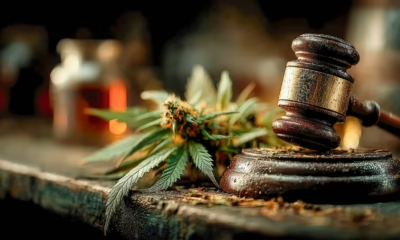

D.C. board rejects ANC 5A challenge to new medical cannabis retailer
-


AG opinion on hemp triggers legal chaos for sellers, consumers
-
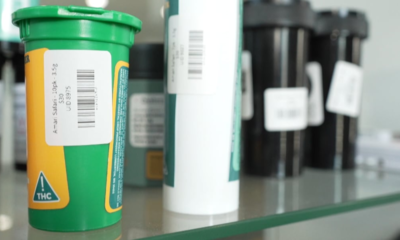

Mississippi Medical Marijuana Association pushing for policy changes
-
Mississippi Cannabis Program Adding 50 Patient IDs Per Day – Ganjapreneur
Mississippi Cannabis News
Dozen arrested after south Mississippi bust for illegal sales to underage customers
Published
5 hours agoon
September 14, 2025
An investigation into south Mississippi businesses selling “alcohol, dangerous illegal vapes, THC edibles,” and other age-restricted or illegal items to underage customers has resulted in at least a dozen arrests with more possible, according to law enforcement.
An announcement by the Perry County Sheriff’s Office said deputies began an investigation in early 2024 after fielding complaints that some businesses in the county were purposely allowing individuals under the age of 21 to purchase age-restricted products.
Sheriff Jacob Garner said as the investigation unfolded, it quickly became clear that the issue was not restricted to Perry County. Law enforcement in nearby Forrest, Lamar, Marion, Greene, Jefferson Davis, and Jones counties had received similar complaints about businesses in their jurisdictions.
Local agencies teamed up with the U.S. Drug Enforcement Agency for over a year’s worth of identifying subjects, initiating traffic stops, and fielding more calls for service. It culminated on Sept. 11 after 20 search warrants were carried out, with 12 individuals being arrested for their involvement in the businesses selling alcohol, tobacco, and THC to minors.
RELATED: Parents urged to talk with students about tobacco risks
“Anyone who chooses to open a business in Perry County for the purpose of selling illegal narcotics, vapes, or THC products to children or adults will be arrested and prosecuted,” Garner said. “These items – disguised as safe or legal – are destroying lives and endangering the health and safety of our citizens. Business owners profiting off the harm of our children and adults in our county will be prosecuted to the fullest extent of the law.”
Garner added that many of the defendants, while operating in different counties, were working in tandem. The Mississippi Bureau of Narcotics, the Mississippi Bureau of Investigation, and the Mississippi Highway Patrol aided in the investigation that remains active.
The following list of arrests and charges has been announced by the involved law enforcement agencies:
- Khaled Alhamidi, 55, of Petal: Two counts of aggravated trafficking of a controlled substance, trafficking while in possession of a firearm, and conspiracy to sell a controlled substance.
- Akram Alhamidi, 25, of Petal: Two counts of aggravated trafficking of a controlled substance, trafficking while in possession of a firearm, and conspiracy to sell a controlled substance.
- Omar Obaid, 40, of Hattiesburg: Two counts of aggravated trafficking of a controlled substance.
- Gaizan Abubaker, 37, of Houma, La.: Two counts of aggravated trafficking of a controlled substance.
- Rami Selah, 32, of Petal: Two counts of aggravated trafficking of a controlled substance, trafficking of a controlled substance while in possession of an enhanced firearm.
- Bassel Saleh, 53, of Petal: Two counts of aggravated trafficking of a controlled substance.
- Mark Shaibi, 24, of Petal: Two counts of aggravated trafficking of a controlled substance, trafficking of a controlled substance while in possession of a firearm.
- Gabr Al-Gabri, 36, of Petal: Two counts of aggravated trafficking of a controlled substance, trafficking of a controlled substance while in possession of an enhanced firearm.
- Basel Rashad, 30, of Petal: Two counts of aggravated trafficking of a controlled substance, trafficking while in possession of a firearm.
- Anmed Elgabry, 30, of Petal: Two counts of aggravated trafficking of a controlled substance, trafficking of a controlled substance while in possession of an enhanced firearm.
- Mohammed Riyadh, 31, of Hattiesburg: Two counts of aggravated trafficking of a controlled substance.
- Ahmedou Mohamedlaamar, 22, of Perry County: Aggravated trafficking of a controlled substance.

Author: mscannabiz.com
MScannaBIZ for all you Mississippi Cannabis News and Information.
Mississippi Cannabis News
US marijuana laws explained as Donald Trump reveals plans for change
Published
3 days agoon
September 12, 2025
Donald Trump is reportedly looking at reclassifying marijuana as a less dangerous drug in the US.
According to an article in the Wall Street Journal, the 79-year-old president is ‘looking at’ making a huge change, which would make it easier to buy and sell weed, making the multibillion-dollar industry more profitable.
The publication’s sources claimed that during a recent fundraiser held at his New Jersey golf club, where tickets for the event went for a whopping $1 million each, the Republican leader first spoke of the potential plans.
He allegedly said he was ‘looking at’ possibly changing the classification of marijuana from a Schedule I controlled substance to a Schedule III substance.
In simple terms, this doesn’t mean it would make the drug completely legal across the US, but it would help ease restrictions on it.

Donald Trump is reportedly considering whether to reclassify marijuana in the US (Bloomberg/Getty Images)
At the event, speaking of tweaking the federal restrictions for the drug, Trump allegedly said: “We need to look at that. That’s something we’re going to look at.”
Then, according to The Telegraph, speaking at a press conference on Monday, the US president affirmed: “We’re looking at reclassification, and we’ll make a determination over, I’d say, the next few weeks.”
He reportedly added that the decision is ‘very complicated’ – so, let’s break it down.
How do US marijuana laws work?
At a federal level, marijuana remains illegal in the US as per the 1970 Controlled Substances Act, however, many states have made their own rules for cannabis use.
As we mentioned earlier, it’s federally classified as a Schedule I drug – this means that federal law considers it to have a ‘high potential for abuse’ and ‘no currently accepted medical use in treatment in the United States’.
But, despite its federal classification, 24 states plus the District of Columbia have fully legalised weed, meanwhile others have opted to only allow it for medicinal purposes.
Cannabis legalisation in individual states can be done in a number of ways, ranging from fully illegal to legal for both medicinal and recreational use.
If you’re in a state that has completely legalised recreational marijuana and you’re 21 or older, you have the right to use cannabis products for your own personal enjoyment.
However, this doesn’t always mean it’s legal to purchase – confusing, I know.
For example, while it’s illegal to buy marijuana in Washington, DC, it’s legal for anyone 21 and older to possess up to two ounces of it and grow up to six marijuana plants in the district.
So essentially, it’s all down to the state you’re in and their specific regulations.
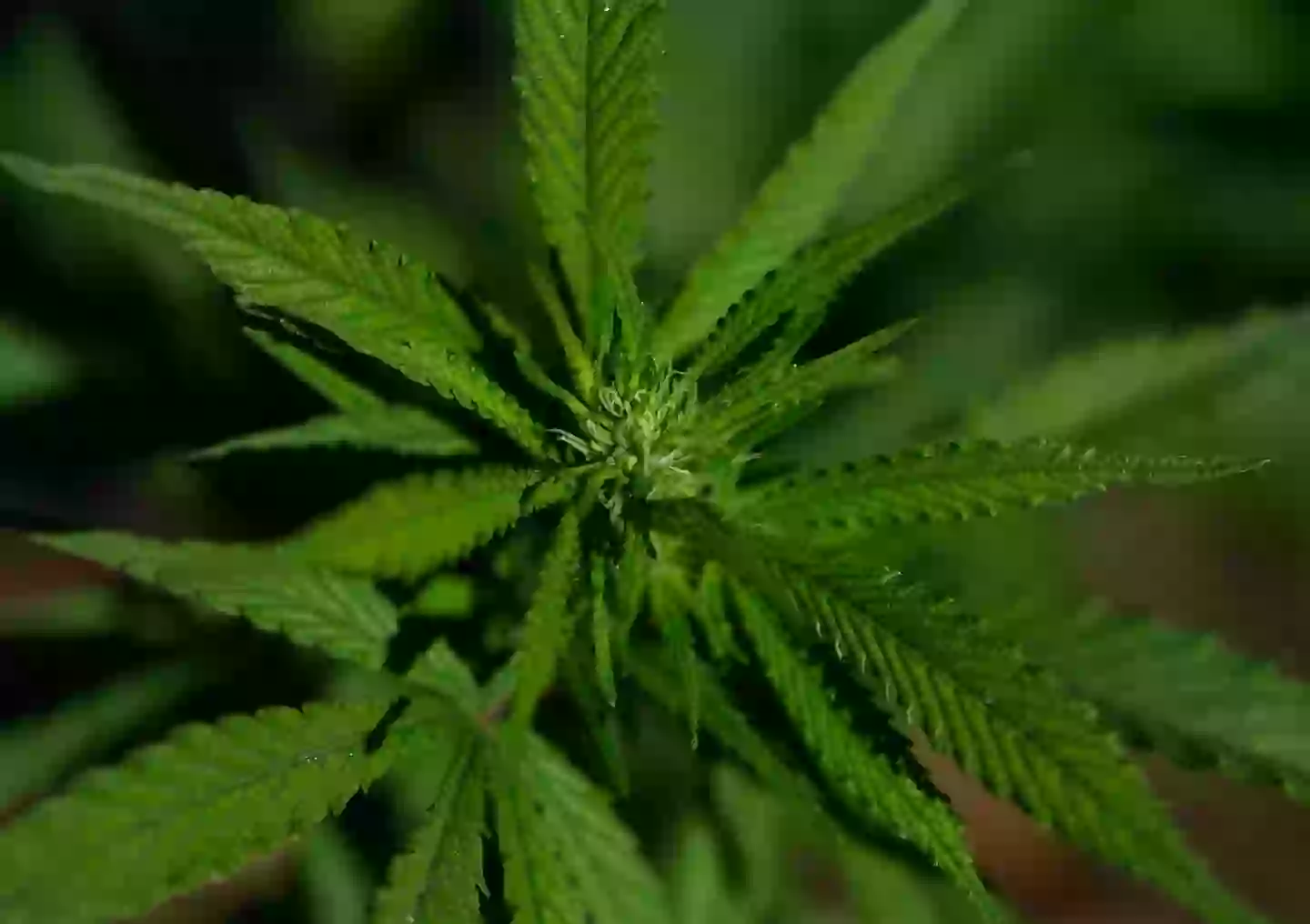
America’s cannabis laws can be a tricky subject to wrap your head around (Justin Sullivan/Getty Images)
What would happen if marijuana became a Schedule III drug?
If Trump were to go ahead and reclassify marijuana as a Schedule III drug, this would be a pretty big change up and down America.
According to the US government’s website, Schedule III drugs are defined as drugs ‘with a moderate to low potential for physical and psychological dependence’ and their ‘abuse potential is less than Schedule I and Schedule II drugs’.
Some examples of Schedule III drugs are products containing less than 90 milligrams of codeine per dosage unit, such as Tylenol with codeine, ketamine, anabolic steroids, and testosterone.
Meanwhile, Schedule I drugs are defined as drugs with no currently accepted medical use and a high potential for abuse.
Some examples include heroin, LSD, ecstasy, and as of right now, marijuana.
It’s important to note that the switch up would not make marijuana completely legal – it would just help ease restrictions and create more opportunities for medical uses and possible tax breaks for marijuana companies.
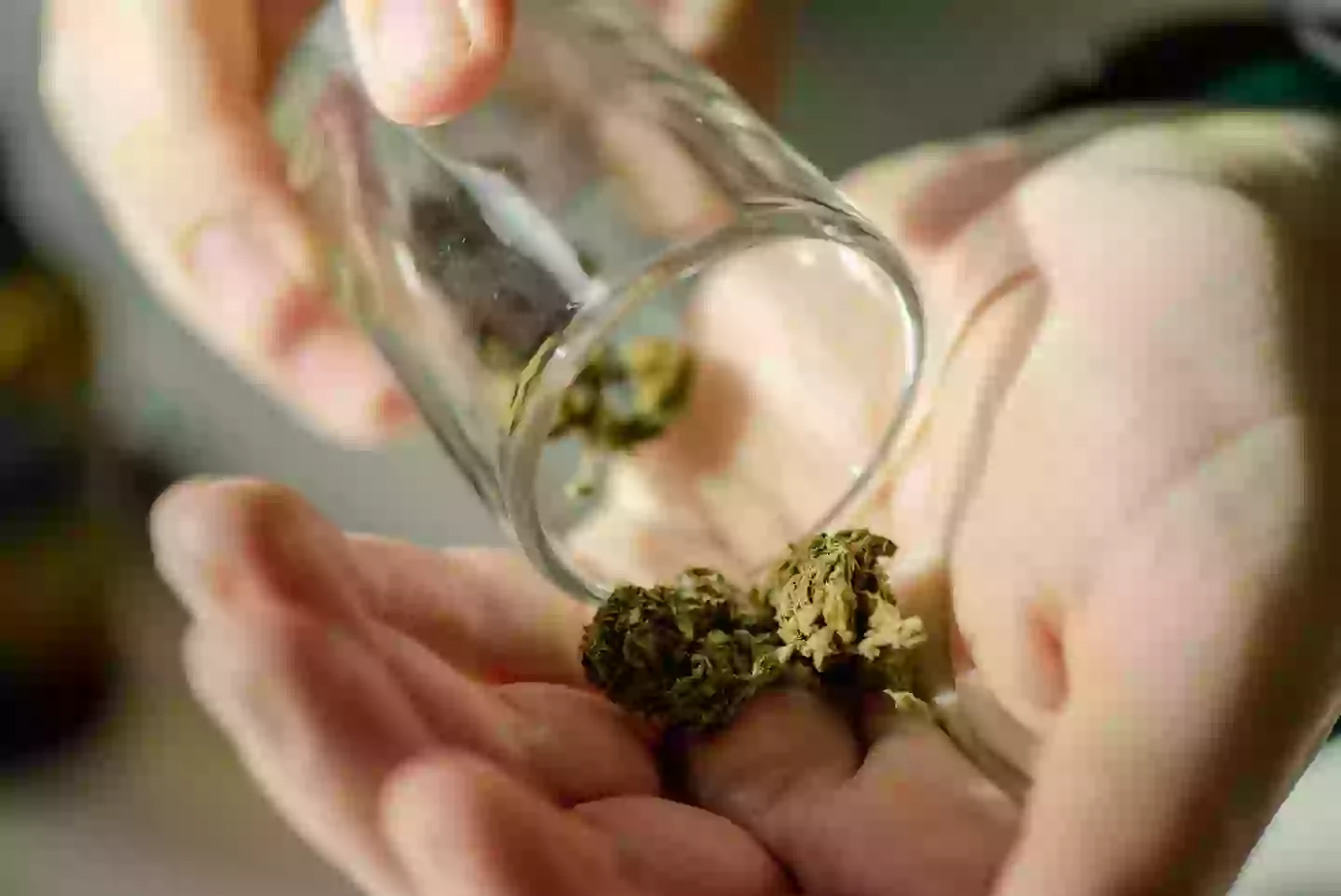
The Republican leader is said to be ‘looking at’ possibly switching marijuana from a Schedule I drug to a Schedule III drug (Emilija Manevska/Getty Images)
Which US states is marijuana currently legal in?
States where marijuana is fully legal:
- Alaska
- Arizona
- California
- Colorado
- Connecticut
- Delaware
- District of Columbia
- Illinois
- Maine
- Maryland
- Massachusetts
- Michigan
- Minnesota
- Missouri
- Montana
- Nevada
- New Jersey
- New Mexico
- New York
- Ohio
- Oregon
- Rhode Island
- Vermont
- Virginia
- Washington
States where marijuana is legal for medical purposes only:
- Alabama
- Arkansas
- Florida
- Georgia (CBD oil only)
- Hawaii
- Indiana (CBD oil only)
- Iowa (CBD oil only)
- Kentucky
- Louisiana
- Mississippi
- New Hampshire
- North Dakota
- Oklahoma
- Pennsylvania
- South Dakota
- Tennessee (CBD oil only)
- Texas
- Utah
- West Virginia
- Wisconsin (CBD oil only)
- Wyoming (CBD oil only)

Author: mscannabiz.com
MScannaBIZ for all you Mississippi Cannabis News and Information.
Mississippi Cannabis News
D.C. board rejects ANC 5A challenge to new medical cannabis retailer
Published
3 days agoon
September 12, 2025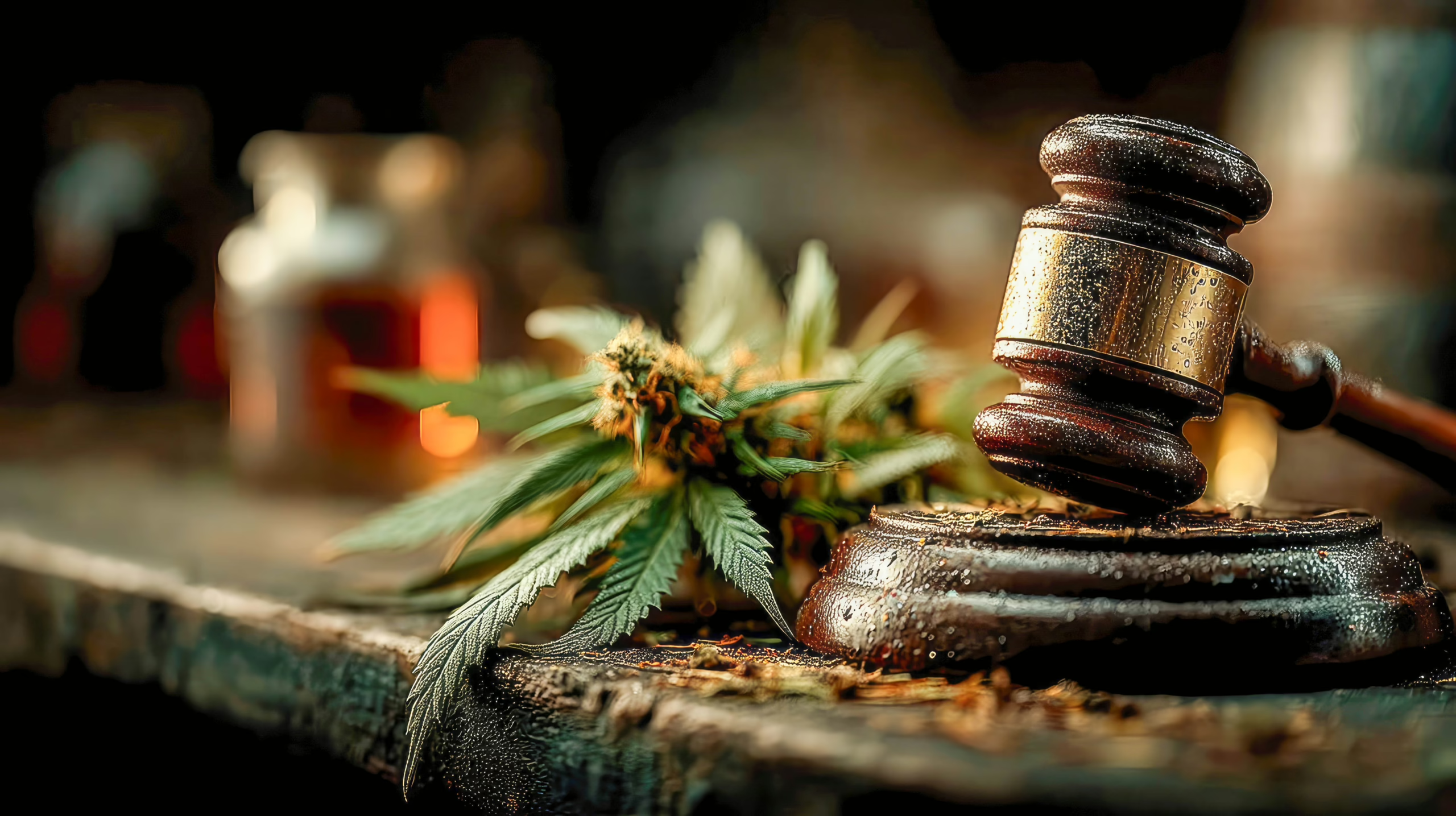
D.C. board rejects ANC 5A challenge to new medical cannabis retailer in Ward 5
The D.C. Alcoholic Beverage and Cannabis Board has rejected ANC 5A’s bid to reinstate its protest against a new Clinical Solutions medical cannabis dispensary in Ward 5, ruling that the ANC’s objections about daycare proximity and safety lacked the specific statutory grounds required to proceed; the license application remains on track, though the decision can still be appealed.
- Alt Sol was featured by wtop News.
- Catch up on today’s ABC Board meeting: watch, agenda.
- Sept. 24, Black Cannabis Week’s D.C. event, “From Prohibition to Policy.”
- A GOP-led House committee is advancing a bill to repeal Washington, D.C.’s Second Chance Amendment Act—which automatically expunges past cannabis possession records—framing the move as part of a broader “restoring law and order” initiative.
Workers protest at Maryland dispensary grand reopening over labor disputes
Cannabis workers and community members protested outside The Apothecarium’s grand reopening in Cumberland, Md., on Sept. 5, alleging the company engaged in union-busting and stalled contract negotiations since employees voted to unionize last year. UFCW Local 27 says workers are demanding fair pay and just cause protections, while the company has not yet issued a response.
Virginia’s 2025 gubernatorial race may decide future of legal cannabis market
Over half of Virginians have used cannabis, but the state currently lacks a legal retail market, though a bipartisan commission is studying its potential and the issue is expected to hinge on the 2025 gubernatorial election. Democratic candidate Abigail Spanberger supports establishing a regulated retail market to boost revenue and public safety, while Republican nominee Winsome Earle-Sears opposes legalization, citing cannabis as a gateway drug.
ICYMI: D.C. Dispensaries Boom, Trulieve Expands, Virginia Cannabis Hits a Turning Point
East Coast Roundup
Once a dominant force in Massachusetts‘ cannabis industry, Fitchburg-based Rev Clinics supplied products to approximately 75% of the state’s dispensaries. However, the company has faced significant challenges leading to its collapse.
A CBD shop in Connecticut shut down following allegations of illegal cannabis sales. The owner has agreed to a settlement.
New York’s licensed cannabis sales surpassed $2.09 billion, with over $1 billion generated in 2025 alone, indicating a robust and expanding market despite market turmoil.
The New York State Office of Cannabis Management announced the transition to the Metrc system for tracking cannabis from seed to sale will start in 2026.
Delaware’s recreational cannabis market achieved $7.3 million in sales during its inaugural month, signaling a strong consumer demand.
The Massachusetts Attorney General certified 44 ballot proposals for the 2026 election, including one aiming to repeal the state’s 2016 law legalizing recreational marijuana sales. This proposal, led by Sudbury resident Caroline Alcock Cunningham, seeks to shut down recreational dispensaries and impose civil penalties for public possession exceeding one ounce.
Culture & More
A new report highlights a significant rise in cannabis use among Americans aged 65 and older, with a 46% increase between 2021 and 2023.
USF Credit Union has introduced ‘Verde,’ a cannabis banking program aimed at providing financial services to the legal cannabis industry in Florida.
A new study found that THC can reach the human egg and may affect female fertility. Women who had THC in their follicular fluid showed a small increase in egg maturity but a lower rate of healthy embryos.
Around the Country
Mississippi’s medical cannabis program is expanding rapidly, with an average of 50 new patient cards issued daily. As of August 2025, the state has approximately 50,000 active cards, up from 40,000 in June 2024.
Texas retailers are relieved after the state legislature failed to pass a ban on THC products during the second special session. Despite this, Lt. Gov. Dan Patrick remains committed to a total ban, citing concerns over youth access.
California’s use of drones to monitor illegal cannabis cultivation led to unintended consequences, including the targeting of residents without cannabis operations. In Sonoma County, drone surveillance resulted in fines, evictions and legal battles for individuals who had no cannabis involvement.
From the swamp
Former Trump advisor Kellyanne Conway is reportedly a strong proponent of rescheduling cannabis, according to a GOP congressman. Her support adds a notable voice to the ongoing debate over federal cannabis policy reform.
OPINION: A Washington Post opinion piece argued that a loophole in the 2018 Farm Bill allows children access to psychoactive hemp-derived substances like delta-8 and delta-10 THC.
Employment Opportunity: DC Licensed Internet Retailer Dispensary Now Hiring. Contact info@getlocald.com to Learn More.

Author: mscannabiz.com
MScannaBIZ for all you Mississippi Cannabis News and Information.

Dozen arrested after south Mississippi bust for illegal sales to underage customers

The Toking Traveler: Why Amsterdam Weed Is Mostly Boof

Arkansas Medical Marijuana Sales Are On Track To Set A New Annual Record

When Cannabis Brands Blur Into Youth Culture, Regulators Notice: Lessons From Tobacco’s Past

Rhode Island Marijuana Dispensary License Application Process Officially Launches

Middle school student found with cannabis in bookbag, Charles County deputies say

Smugglers who brought drugs on an industrial scale into Wales jailed

Attorney pulls out bag of cannabis in NC Supreme Court hearing

WHO AM I? Man wanted for New Bern cannabis store theft

Cannabis packages under scrutiny

California authorities shut down nearly $30 million worth of illegal cannabis operations

A Green Light for Cannabis? Europe Waits While the U.S. Untangles the Red Tape

Move Over, Booze: Weed Drinks Pulled $1.1 Billion in U.S. Sales in 2024

Congressional Committee Votes To Repeal Marijuana Expungements Law In Washington, D.C.

Times Square Welcomed Its Brightest Cannabis Billboard Yet

Smoking Marijuana With A Water Bong Doesn’t Effectively Filter Compounds From Smoke, Study Suggests

A Beginner’s Guide for Watering Cannabis Plants

Massachusetts Lawmakers Approve Bill To Create Psychedelic Therapy Pilot Program

From the Dark Web to the Streets: Meet the Canadian Distributing Pure Cocaine to Save Lives

Congressional Committee Schedules Hearing On Chinese ‘Invasion’ Through ‘Illegal Marijuana’ Operations

Carmelo Anthony Marks Hall of Fame With Hall of Flame Cannabis Drop

California: Lawmakers Advance Legislation to Governor’s Desk Halting Tax Hike on Commercially Available Cannabis Products

Federal Agency Gives Anti-Marijuana Group A Platform To Make Claims About Legalization’s Impact That Aren’t Supported By Data

California Cannabis Excise Tax Going Back to 15% Next Month

Alert: Department of Cannabis Control updates data dashboards with full data for 2023

Connecticut Appoints The US’s First Cannabis Ombudsperson – Yes there is a pun in there and I’m Sure Erin Kirk Is Going To Hear It More Than Once!

5 best CBD creams of 2024 by Leafly

EU initiative begins bid to open access to psychedelic therapies
New Study Analyzes the Effects of THCV, CBD on Weight Loss

Free delta-9 gummies from Bay Smokes

5 best autoflower seed banks of 2024 by Leafly

Discover New York’s dankest cannabis brands [September 2024]

Press Release: CANNRA Calls for Farm Bill to Clarify Existing State Authority to Regulate Hemp Products

May 2024 Leafly HighLight: Pink Runtz strain

Curaleaf Start Process Of Getting Their Claws Into The UK’s National Health System – With Former MP (Resigned Today 30/5/24) As The Front Man

Local medical cannabis dispensary reacts to MSDH pulling Rapid Analytics License – WLBT

5 best THC drinks of 2024 by Leafly

Recreational cannabis on ballot for third time in South Dakota

Horn Lake denies cannabis dispensary request to allow sale of drug paraphernalia and Sunday sales | News

Mississippi city official pleads guilty to selling fake CBD products

6 best CBD gummies of 2024 by Leafly

Nevada CCB to Accept Applications for Cannabis Establishments in White Pine County – “Only one cultivation and one production license will be awarded in White Pine County”

The Daily Hit: October 2, 2024

5 best delta-9 THC gummies of 2024 by Leafly

Weekly Update: Monday, May 13, 2024 including, New Guide for Renewals & May Board meeting application deadline

PRESS RELEASE : Justice Department Submits Proposed Regulation to Reschedule Marijuana

5 best THCA flower of 2024 by Leafly

People In This State Googled ‘Medical Marijuana’ The Most, Study Shows
Trending
-

 California Cannabis Updates1 year ago
California Cannabis Updates1 year agoAlert: Department of Cannabis Control updates data dashboards with full data for 2023
-

 Breaking News1 year ago
Breaking News1 year agoConnecticut Appoints The US’s First Cannabis Ombudsperson – Yes there is a pun in there and I’m Sure Erin Kirk Is Going To Hear It More Than Once!
-

 best list1 year ago
best list1 year ago5 best CBD creams of 2024 by Leafly
-

 Business12 months ago
Business12 months agoEU initiative begins bid to open access to psychedelic therapies
-

 cbd1 year ago
cbd1 year agoNew Study Analyzes the Effects of THCV, CBD on Weight Loss
-

 Bay Smokes1 year ago
Bay Smokes1 year agoFree delta-9 gummies from Bay Smokes
-

 autoflower seeds12 months ago
autoflower seeds12 months ago5 best autoflower seed banks of 2024 by Leafly
-

 cannabis brands12 months ago
cannabis brands12 months agoDiscover New York’s dankest cannabis brands [September 2024]

